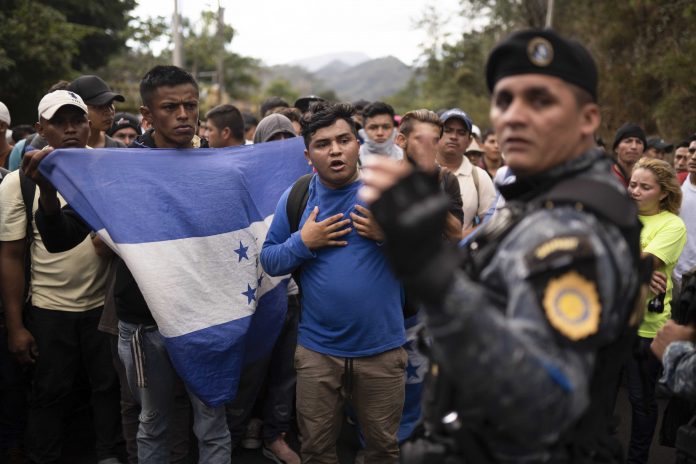
By SONIA PÉREZ D. and GISELA SALOMON
Associated Press
GUATEMALA CITY (AP) — The United States agreed Monday to train members of a Guatemalan task force responsible for protecting the country’s borders and putting a brake on uncontrolled migration.
The U.S. offer came during a video call between U.S Vice President Kamala Harris and Guatemalan President Alejandro Giammattei.
The U.S. will send 16 employees of the Department of Homeland Security to aid in the effort. The United States will also help Guatemala to build shelters for returned migrants and help the migrants transition back to life in their home communities.
The agreement comes amid a spike in the number of migrant children arriving at the U.S. border, man of them Guatemalan.
“On border security, what was discussed was the establishment of a joint task force for border protection,” said Pedro Brolo, Guatemala’s foreign minister. “The U.S. government offered training.”
The effort will be spearheaded on the Guatemalan side by the Division of Border Ports and Airports.
Harris told Giammattei the U.S. is planning to increase relief to the Northern Triangle region — Guatemala, Honduras and El Salvador — and “strengthen our cooperation” to better manage the steep increase in migration at the U.S. southern border.
The conversation marked a ramping up of Harris’ diplomatic efforts to address the root causes of migration from the region, a role she was given by President Joe Biden last month.
In her opening remarks, Harris spoke about what she described as the “acute causes” of the spike in migration — hurricanes that battered the region last fall, a persistent drought and the coronavirus pandemic — as well as “root causes” like the lack of economic opportunity in the region, extreme weather conditions and government corruption.
“We want to work with you to address both the acute causes as well as the root causes, in a way that will bring hope to the people of Guatemala that there will be an opportunity for them if they stay at home,” Harris said.
She promised an increase in aid to countries in the region and efforts to better cooperate to “manage migration in an effective, secure and humane manner.”
Her comments come the same day the Biden administration announced sanctions against one current and one former Guatemalan government official for corruption.
“These sanctions support efforts by the people of Guatemala to end the scourge of corruption, as part of the US government’s commitment to support improvements in governance in Guatemala,” Secretary of State Antony Blinken said in a statement.
Neither Harris nor Giammattei referred to the sanctions in their opening statements.
Giammattei told Harris that his country’s government would like to be a “partner” to the U.S. to address “not only poverty, but so many evils that affect us.”



















